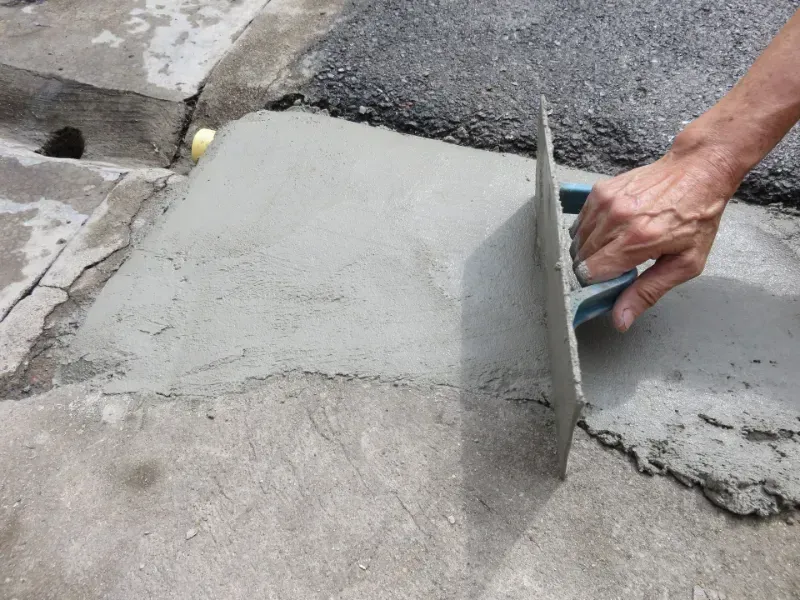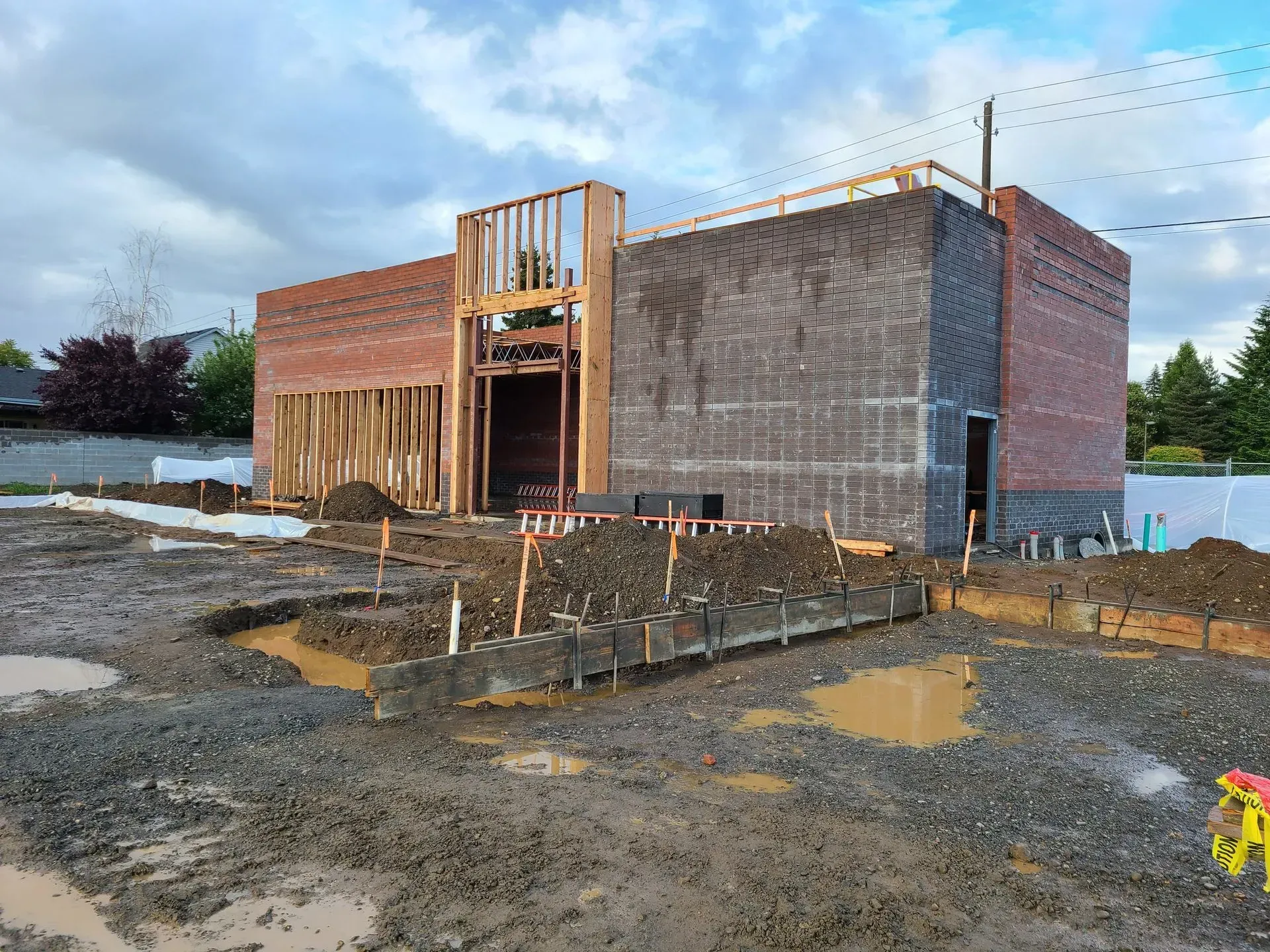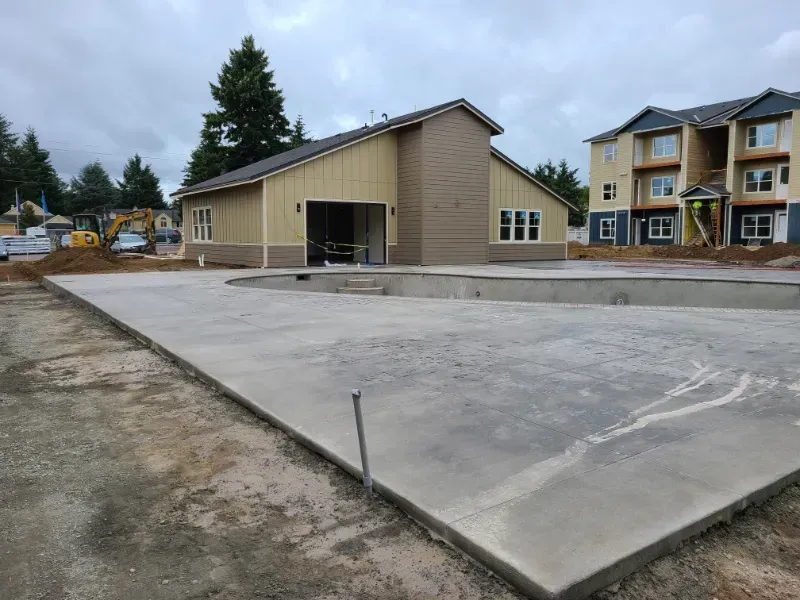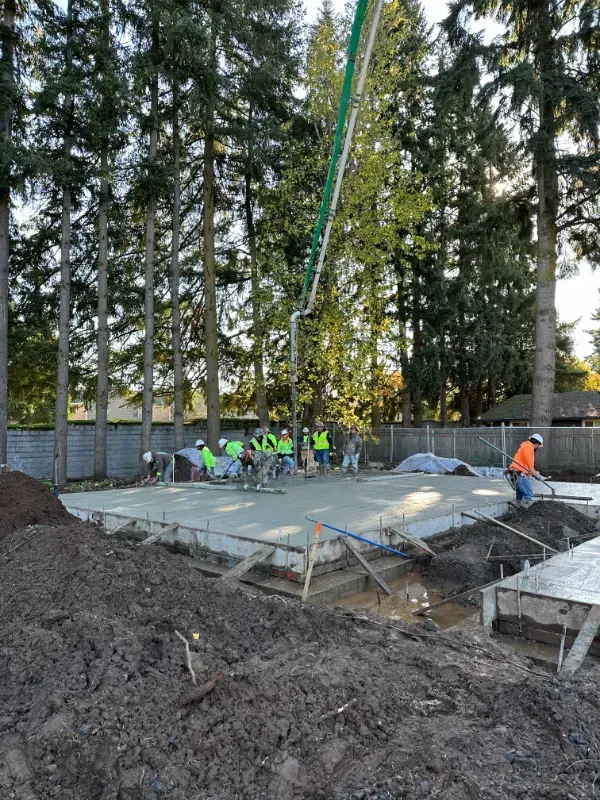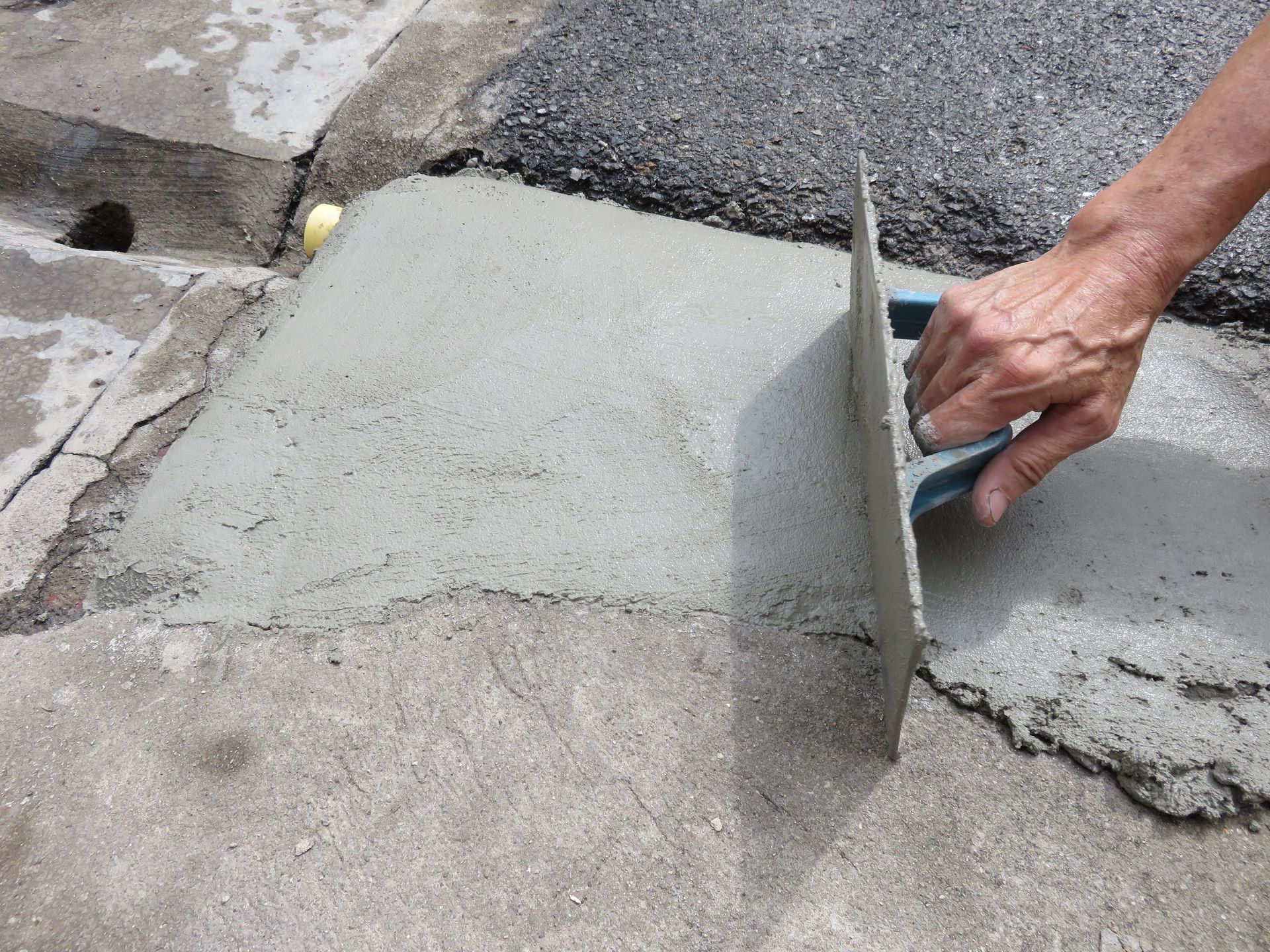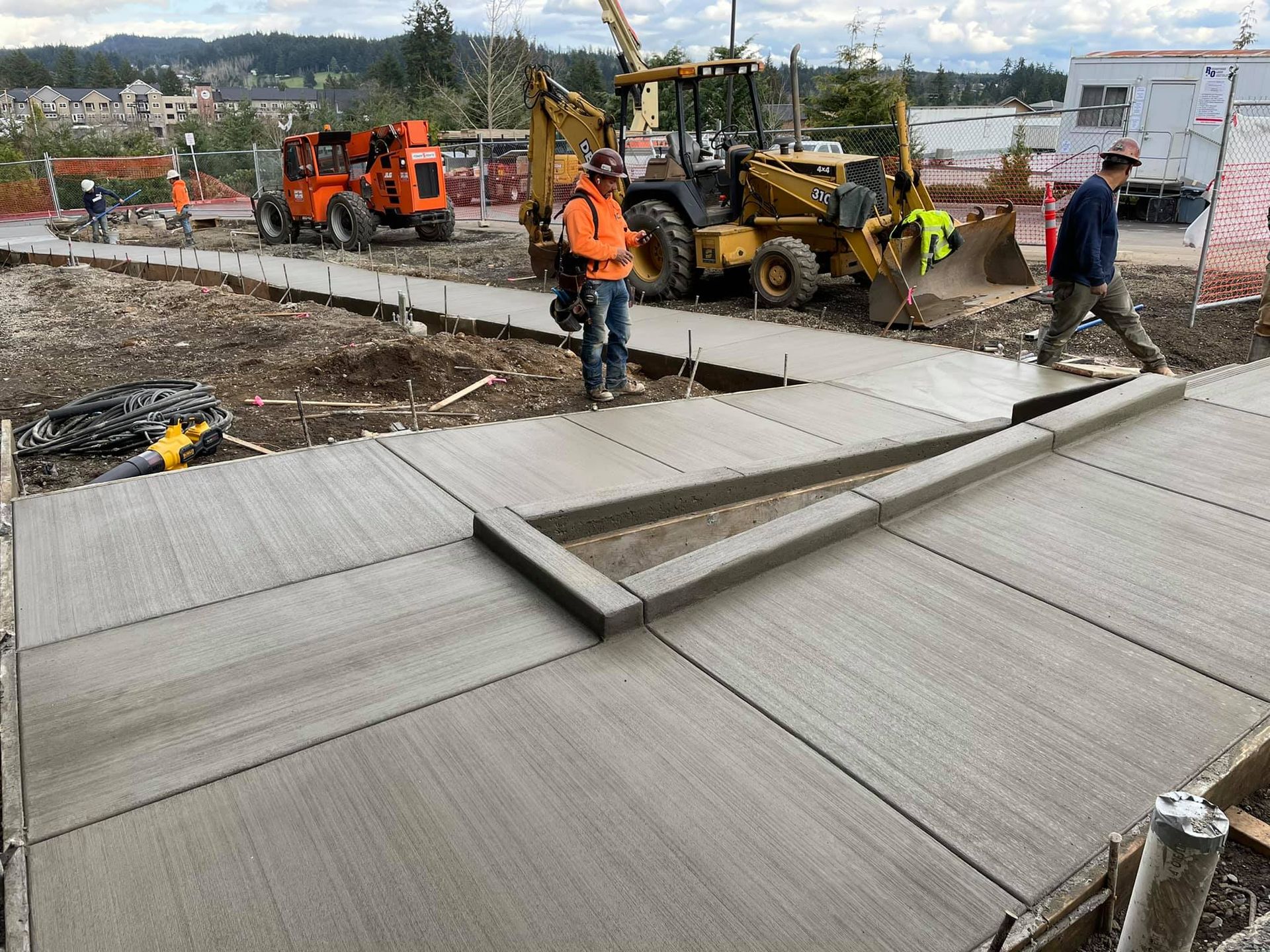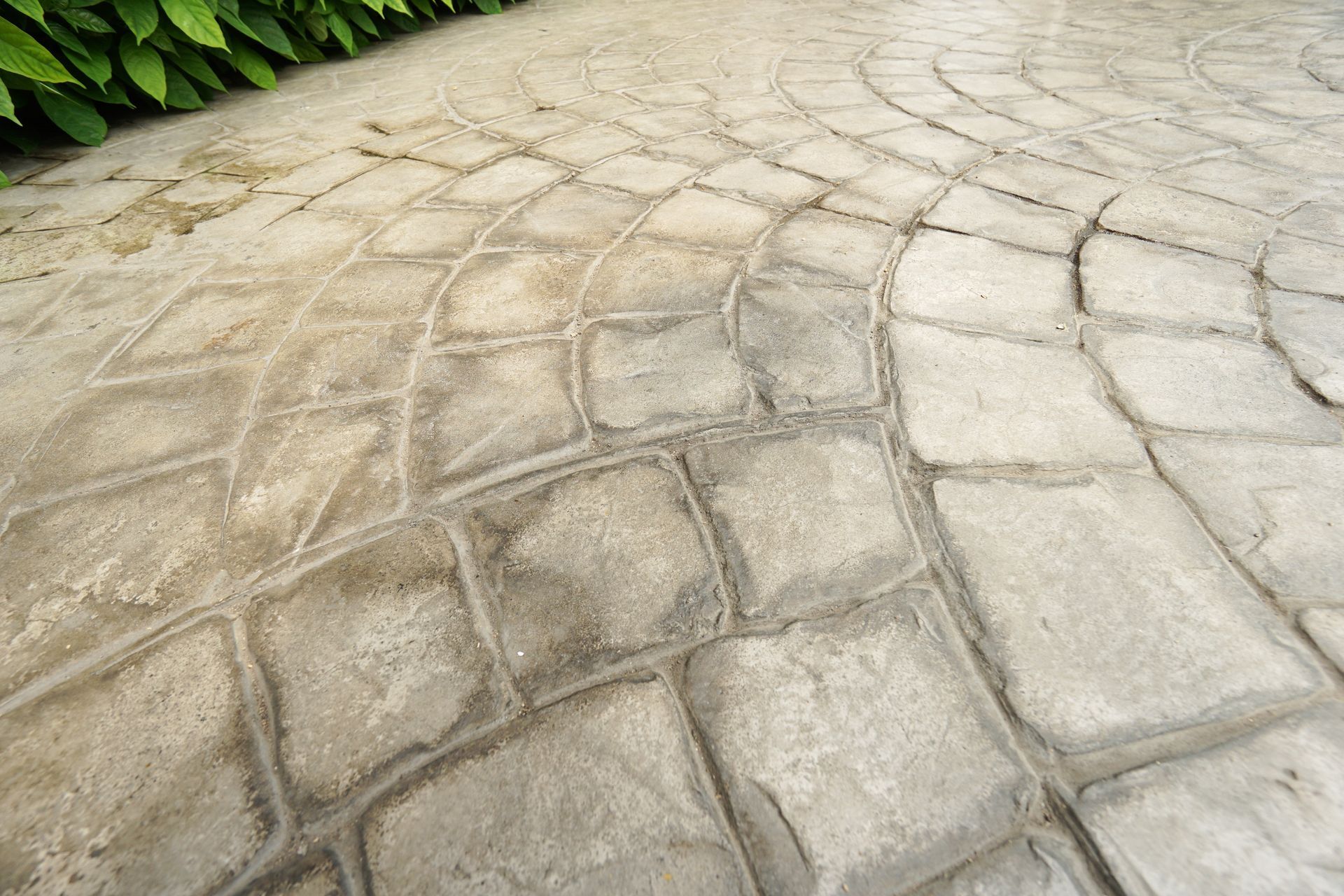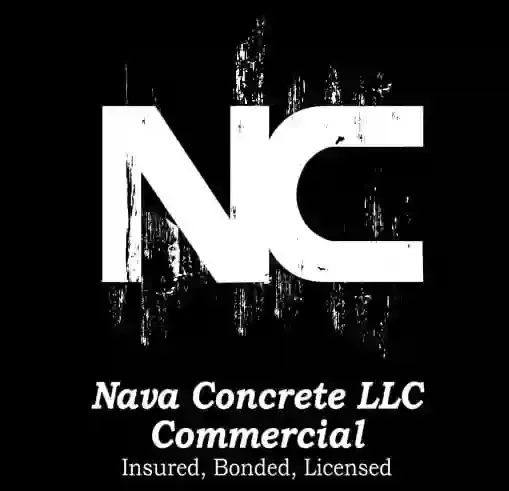Asphalt vs Concrete Driveways: Which One Is For You?
When it comes to paving your driveway, you're faced with a choice: Concrete or Asphalt?
It's a decision that can leave many homeowners scratching their heads, wondering, "What's the real difference between concrete driveways and asphalt?"
The truth is, selecting the right material for your driveway isn’t just about looks. You’ve got to think about the cost, how long it will last, how it’ll hold up in your climate, and of course, whether it fits the design you envision. Concrete driveways, for example, offer a solid, long-lasting surface, but they come with their own set of pros and cons compared to asphalt.
In this guide, we will break down everything you need to know about these two popular paving options. From durability to design, maintenance to cost, we’ll help you uncover the key differences so you can confidently choose the best material for your driveway project.
Ready to find out whether concrete driveways or asphalt is right for you? Let’s start diving into the details!
Asphalt Driveway Overview
When deciding on the perfect material for your driveway, asphalt often comes up as an affordable option. But what exactly is an asphalt driveway? Simply put, it’s a mix of stone, sand, and petroleum products, heated up and rolled out to create that familiar, smooth surface. It cools and hardens into a sleek driveway, but there’s more to consider.
Why Choose an Asphalt Driveway?
When you're thinking about getting a new driveway, asphalt might catch your eye because of its lower upfront cost. If you're watching your budget, asphalt driveways can be an affordable option to get the job done. Plus, the installation process is quick. You can often drive on your new asphalt driveway just a few days after it's laid, making it super convenient for homeowners who need something fast.
Asphalt also shines in cold climates, where freezing and thawing can be tough on driveways. Its flexible nature helps it withstand these temperature changes, making it less likely to crack than some other materials. And if cracks do appear, asphalt is easy to repair—just patch it up, and you're good to go! This makes it a go-to option for anyone looking for a quick, budget-friendly solution.
The Trade-Offs
While asphalt has some perks, it's important to know that it doesn’t last as long as other materials, like concrete. Over time, asphalt driveways can start to wear out, meaning you’ll need to do more upkeep. Sealing is a must to keep that smooth, black surface looking fresh, and you’ll need to reseal it every few years. Without regular maintenance, the surface can crack or crumble, which can be a hassle in the long run.
Another thing to consider is that asphalt isn’t the best choice for hot climates. When the summer sun beats down, it can get soft, making the surface prone to dents and grooves from heavy vehicles. Asphalt also doesn’t offer much in terms of design options. If you’re looking for a unique, stylish driveway that adds curb appeal, asphalt’s limited color and texture options might leave you wanting more.

Concrete Driveway Overview
A concrete driveway is made from a blend of sand, cement, and gravel, poured and cured for about a week, forming a strong and durable surface. While both asphalt and concrete driveways serve the same purpose, concrete has unique characteristics that set it apart.
Why Does Concrete Driveway Stand Out?
Concrete driveways are known for their long-lasting durability, offering up to 50 years of use with minimal maintenance. Unlike asphalt, concrete is resistant to heavy loads, making it perfect for homes that see frequent truck or RV traffic. Plus, its rigid surface can be customized with various finishes, colors, and patterns, giving homeowners more creative control.
Concrete does come with a higher price tag upfront, but the long-term savings on maintenance make it a smart investment. Occasional degreasing and patching are all that are typically needed to keep a concrete driveway looking fresh. For those who want to add a touch of flair, concrete can be stamped, stained, or even engraved to fit your home's style.
The Trade-Offs
While concrete is undeniably durable, it’s not immune to wear and tear. Freezing temperatures can cause cracks, which are harder and more expensive to repair than in asphalt driveways.
The initial cost is also higher. And once installed, you’ll need to wait a full week before driving on it, unlike asphalt, which dries faster.
If you’re looking for a driveway that combines longevity, low maintenance, and creative flexibility, a concrete driveway is an ideal option. It's perfect for homeowners who plan to stay put and want a durable, custom driveway that stands the test of time.
Asphalt vs Concrete Driveway Summary Table
Below is a comparison to help you weigh the pros and cons of each material and determine which is the best fit for your driveway.
| Feature | Concrete Driveway | Asphalt Driveway |
|---|---|---|
| Cost | Higher upfront cost | More budget-friendly initially |
| Durability | Extremely durable, lasts 50+ years with minimal maintenance | Less durable, typically lasts 20-30 years |
| Maintenance | Low maintenance (occasional cleaning, degreasing) | Requires regular resealing every 3-5 years |
| Customizability | Highly customizable: stamped, stained, colored, engraved | Limited design options, but newer colored sealers are available. |
| Resistance to Cracking | More prone to cracking in freezing temperatures | More flexible, handles freeze-thaw cycles better |
| Eco-friendliness | Recyclable, reflects heat, eco-friendly long-term solution | Recyclable, but derived from petroleum products |
When it comes to choosing between concrete and asphalt driveways, the decision boils down to your priorities. Concrete driveways stand out for their unmatched durability, lasting 50+ years with minimal maintenance. While the upfront cost is higher, concrete offers long-term savings and the ability to fully customize the look to fit your home's aesthetic. Whether you want a sleek, polished surface or a unique stamped design, concrete is versatile and reliable, especially for those who plan to stay in their homes for many years.
On the other hand, asphalt driveways provide a cost-effective, quicker-to-install option, but they require more frequent maintenance and repairs. If you're looking for longevity, low maintenance, and creative flexibility, concrete is the way to go.
On the Fence Between Asphalt and Concrete? Here’s Why Concrete Is the Smarter Choice!
If you're weighing your options between asphalt and concrete, consider the long-term benefits. Concrete offers unmatched durability, less maintenance, and adds lasting value to your home. While asphalt may seem tempting, concrete is the investment that saves you money and headaches down the road.
Still unsure? Let us at Nava Concrete LLC show you why a concrete driveway is the best decision for your home. Reach out today at (360) 721-8093 for a free consultation,, and we’ll help you make the choice that will last for decades!
CONTACT US
You can also find us here:
QUICK MENU
All Rights Reserved | Nava Concrete LLC


